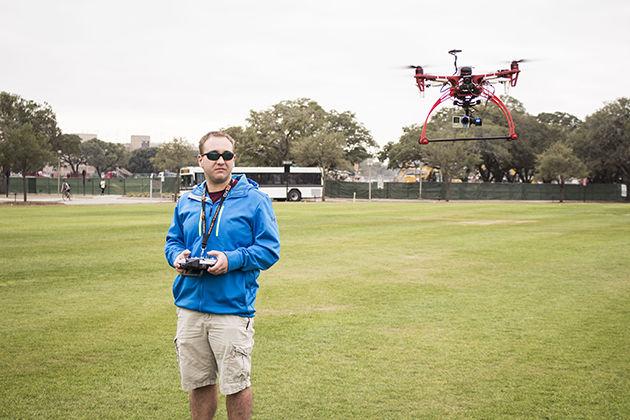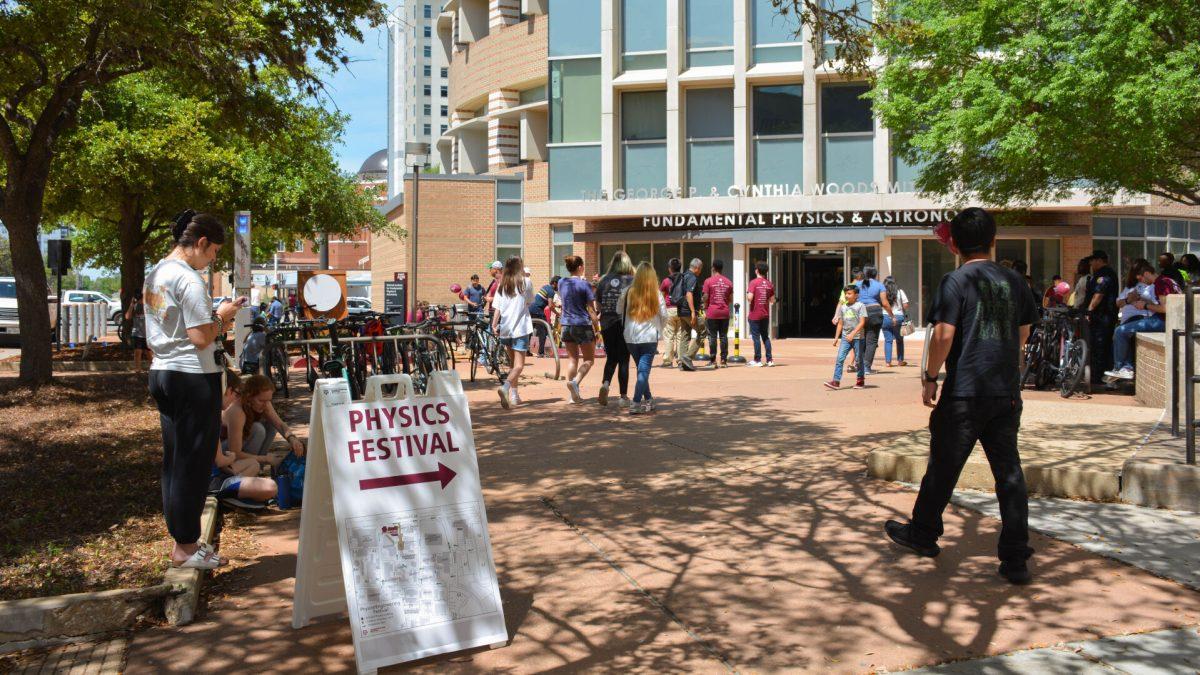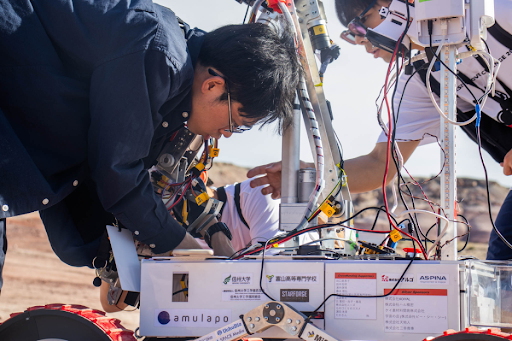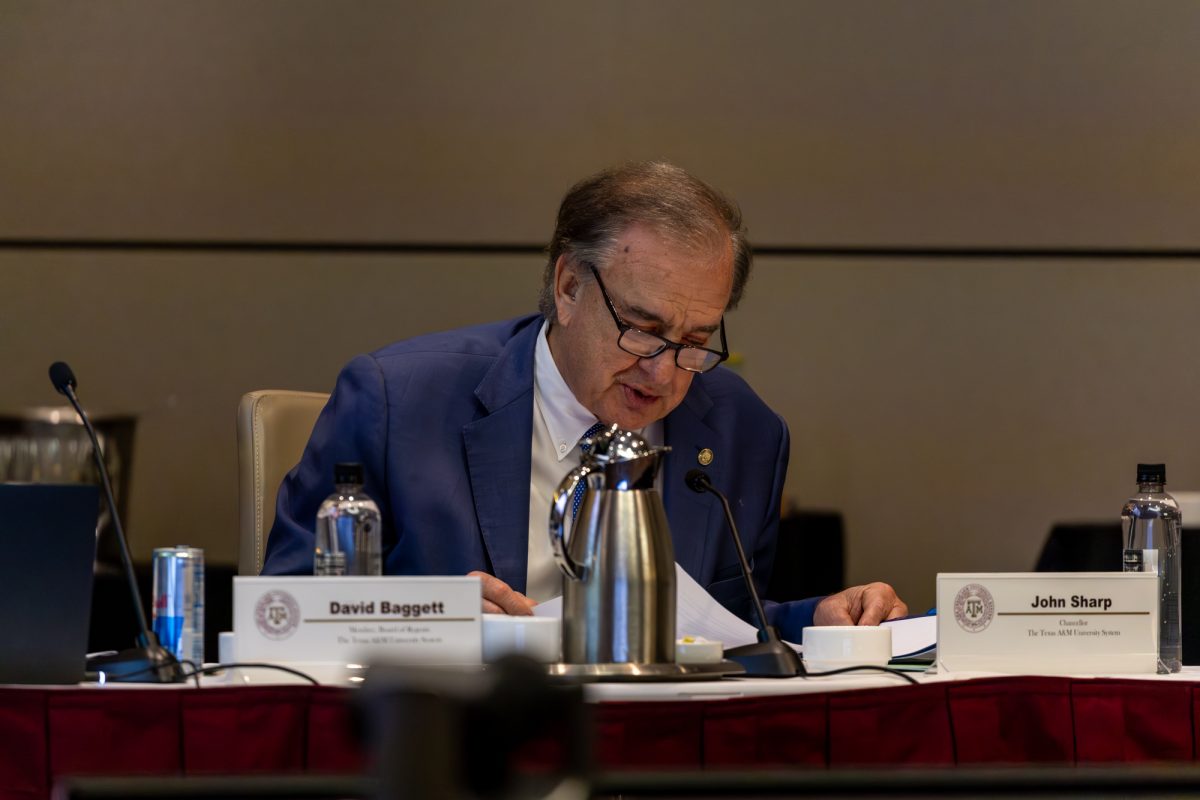For just over a month, a new set of laws have governed the skies above America for drone enthusiasts.
Implemented Dec. 21, the Federal Aviation Administration’s new regulations require individuals owning small unmanned aircrafts — often referred to as UAS or drones — to register all craft between .55 pounds and 55 pounds. with the FAA. Many UAS amateurs and enthusiasts, including current students, say the registration law makes the skies safer for everyone and is a sign that the industry as a whole is maturing.
Jerry Hendrix, executive director of the Lone Star UAS Center of Excellence and Innovation, said the law is an important step in creating a secure and safe national airspace.
“The registration makes everyone, including hobbyists, pause and understand the responsibility of aircraft ownership,” Hendrix said. “It is incumbent on UAS enthusiasts across the country to lead by example to assure a safe national airspace. Hobbyists are required to register their greater-than-0.55-pound UAS just like anyone else.”
Zeke Bowden, aerospace engineering senior, said he has been flying UAS’ for years.
“I like to fly for fun, a lot of times I’ll have a camera strapped here I’ll use it for aerial photography,” Bowden said. “I like to go out and hike to state parks and if they have nice scenery out there. I’ll take it with me and get nice shots of the area. It can be a beach, a park, anything like that.”
Nash Porter, electrical engineering senior, is an avid UAS enthusiast and has flown some type of drone since childhood. He said the FAA registration process affects him very little.
“For me it wasn’t that big of a deal because there were laws already in place before the FAA came out and made you register your drone,” Porter said. “You would still get in trouble if someone caught you. The FAA just made those laws apply to everyone who was flying a remote vehicle.”
Bowden said he felt the registration process was easy and straightforward.
“The FAA does it so you pay a $5 fee. [Once] you register online, it takes five to 10 minutes, and you are given a serial number,” Bowden said. “That serial number you just place on every one of your vehicles. It can be a helicopter, it can be an airplane, it can be a UAV … It’s just one number for all of your vehicles.”
Bowden said he felt the move was designed to give accountability to hobbyists who were breaking already existing laws.
“There are people who are doing things with these that they shouldn’t be,” Bowden said. “They are flying over airports; they are flying over sporting events, places where people can get hurt if these things fall out of the sky.”
Porter said the FAA serial number will allow authorities to identify individuals flying illegaly much easier.
“What the FAA did was they said, ‘Okay if we see someone flying and we can get ahold of their vehicle we can pinpoint who did it.’ The FAA isn’t making it harder or anything to fly,” Porter said. “They are just making it so that people are held accountable for the illegal practices that they use their vehicles for.”
Porter said he hopes the stiff penalties associated with flying unregistered will curb illegal UAS activities.
“If anything, it is going to keep people doing the right thing from now on,” Porter said. “You can’t get away with it, doing illegal stuff to begin with.”
Hendrix said the regulation will have a very limited impact on enthusiasts who follow the rules.
“The new registration doesn’t prevent a hobbyist from having a great UAS experience,” Hendrix said. “It is just the FAA regulating the airspace to assure safe operations for all users including general aviation, commercial aviation and UAS hobbyists alike.”
Bowden said he is cautiously optimistic about the regulations.
“In a way it’s just trying to get things a little bit more organized,” Bowden said. “It’s still really early in the process, so we aren’t really too sure how it’s going to turn out. I hope it works, but there is always going to be the select group of people who aren’t going to follow those rules.”










